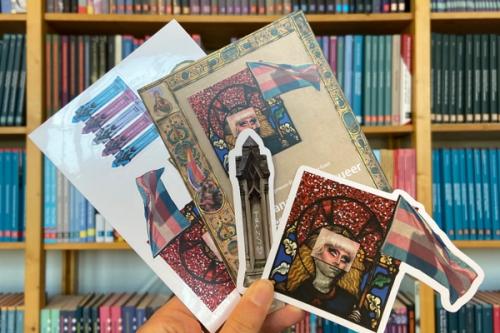Lambda Literary Awards Finalist - Trans and Genderqueer Subjects in Medieval Hagiography

We're so proud to announce that Trans and Genderqueer Subjects in Medieval Hagiography, Alicia Spencer-Hall, Blake Gutt (eds), has been selected as a finalist in the Transgender Nonfiction category of the 2022 Lambda Literary Awards.
For over 30 years, the Lambda Literary Awards (or "Lammys") have maintained a proud tradition of celebrating vibrant, dynamic LGBTQ storytelling. The finalists were selected by a panel of over 60 literary professionals from more than 2,300 book submissions—the highest in Lammy Award history.
We offer our huge congratulations to editors Alicia Spencer-Hall and Blake Gutt, as well as all the contributors involved in this ground-breaking book.
About the book
Trans and Genderqueer Subjects in Medieval Hagiography presents an interdisciplinary examination of trans and genderqueer subjects in medieval hagiography. Scholarship has productively combined analysis of medieval literary texts with modern queer theory – yet, too often, questions of gender are explored almost exclusively through a prism of sexuality, rather than gender identity. This volume moves beyond such limitations, foregrounding the richness of hagiography as a genre integrally resistant to limiting binaristic categories, including rigid gender binaries. The collection showcases scholarship by emerging trans and genderqueer authors, as well as the work of established researchers. Working at the vanguard of historical trans studies, these scholars demonstrate the vital and vitally political nature of their work as medievalists. Trans and Genderqueer Subjects in Medieval Hagiography enables the re-creation of a lineage linking modern trans and genderqueer individuals to their medieval ancestors, providing models of queer identity where much scholarship has insisted there were none, and re-establishing the place of non-normative gender in history.
Featured content
View and freely download the Table of Contents, Introduction and Appendix: Trans and Genderqueer Studies Terminology, Language, and Usage Guide here.
